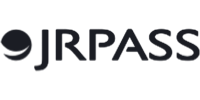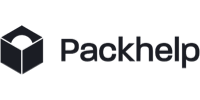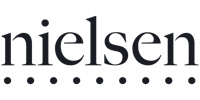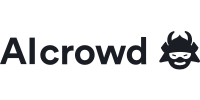Hire Vetted Product Owners
Matched with your industry, project and company culture.
Our rating on
Delivering exceptional business talent swiftly and smoothly.
Diverse Source Of Talent
- Talent Network of vetted freelancers
- Top software companies from the CEE region
- Ideamotive's core business team
Streamline Hiring Process
- Only pre-vetted talent and trusted partners
- Experts matched with your industry, company culture and project type
- Shortlist of talent under 24 hours
Ultimate Business Support
- Your dedicated Talent Specialist
- Payments, insurance, legal and admin taken care of and united under one invoice per month
- Talent management and performance reporting during whole collaboration
Startups, scale-ups and enterprises build their teams with Ideamotive






How to hire Product Owners with Ideamotive?
Tell us about your business requirements
Talk to our advisor about your exact needs, product specifics, and team dynamics. The more we know at this step, the better the future match will be.
Get the shortlist of talent under 24 hours
Based on the interview, we will shortlist Product Owners best suited for your needs.
Hire and onboard with a money-back guarantee
We will onboard the talent and take care of all payments, insurance, reporting, and other dull processes. There is also a 7 days money-back guarantee after the project's kick-off.
We’ve been extremely satisfied. We work with multiple partners, but they’re our main supplier because of the quality of their work.

Håkon Årøen
Co-founder & CTO of Memcare
Ideamotive has a huge pool of talent. Don’t just settle for someone: find a person who understands your project and has the competencies you need.

Julian Peterson
President, Luminate Enterprises
They understand and navigate the industry to deliver an outcome that will truly stand out. Despite a heavily saturated market, they’ve delivered creative solutions that I haven’t seen before.

Adam Casole-Buchanan
President, Rierra INC
They are very flexible, providing a team of developers on short notice and scaling the size as needed. Their team meets tight deadlines, including some that only give them a few hours to do the work.

Sylvain Bernard
Event Manager, Swiss Federal Institute of Technology Lausanne
Our Product Development Success Stories
JRPass: optimizing a booking system for the Japanese railway network
Read the story of how combined our business expertise with outstanding web development, increased conversion rates, and boosted sales.

Our project manager had things taken care of and their backend developers had great technical abilities. They’ve been the best we’ve had so far!
Daniel de Nieuwe, Senior Product Manager, JRPass.com
Close
TRAVELDUCK: building a marketplace for boutique adventure trips and activities
How we created a fully functional digital marketplace from scratch and helped the Client validate the business model for scaling up.

They took a very progressive approach to our needs!
Peter Grabo, Founder of TravelDuck
Close
Why do you need a great Product Owner?
Speed up the development process
Let your developers focus on what they are really good at — coding. Leave all the management processes, such as reporting to stakeholders or managing backlog to Product Owner, so the development process goes more efficiently.
Launch what’s really needed
Prioritize the product’s features that your customers want. Multiple teams in the company regularly request new things to be developed by engineers, but Product Owner, based on their market knowledge, is the one who decides what goes first.
Deliver products that meet the standards
Run your new project on software development best practices. Product Owner brings the needed expertise to your company, planning the work of engineers so everything is delivered on time and within the budget.
Drive innovation
Make your team as efficient as possible. Agile, Scrum, and other similar methodologies have been implemented in order to allow engineers to work in an environment that drives innovation, and the Product Owner is the guardian of these principles.
Product Owners: Who Are They And Why Do You Need Them?
Startups usually relatively quickly start looking for a Product Owner. After they already hire a few developers, there must be someone to manage their work and take care of all the non-dev things for them, so coders can simply focus on the code itself.
With Product Owner in a Scrum team, a new level of organization will be added to your company. Thanks to it, the software will be delivered faster, correct new features will be prioritized, and users’ needs will be translated into specific tasks to be taken care of by a developer. Even more importantly, you will be sure that there is one specific person responsible for the vision behind your product - it won’t be anymore a mix of ideas coming from different people, but a clear plan for the future.
But what is exactly a Product Owner and how to hire one that will really fit well into your team? To find the answer to these and other related questions, continue reading this piece.
Product Owner responsibilities
Product Owners have a lot on their plate. It’s not only about the great variety of tasks they have every day, but also the number of people from different teams trying to reach out to them.
Some of the most important and typical Product Owner responsibilities are:
- Defining the vision of the product.
- Prioritizing needs for the development team, deciding which features should be taken care of first.
- Managing the product backlog, making sure the most crucial issues are fixed first.
- Planning the work of the development team (usually in the form of a roadmap) and clearly presenting it to CEO/stakeholders/others in management roles.
- Running Scrum sprints and making sure they are not interfered with by other teams. Stints are regular, relatively short (a month or less) time-boxes which should end with a “Done” product (e.g. a specific functionality of a web app).
- Understanding the needs of clients/users and translating these needs into tasks and messages easily understandable by developers.
- Participating in daily stand-ups and other similar team events
- Making sure everything is delivered according to deadlines that have been set.
- Making sure that Scrum processes are followed (working on this with Scrum Master, if one is present).
Product Owner vs Project Manager — what is the difference?
To the untrained eye, Product Owner and Project Manager might seem like the same role, just named differently. But, although there are some similarities between the two, Project Manager and Product Owner responsibilities differ significantly enough to have people in both of these roles working on the same project.
Putting it as simply as possible, Project Manager is responsible for delivering the product within the set deadlines and budget, while Product Owner’s goal is to establish the whole vision behind the product as well as the strategy that will make the product successful. Both PM and PO work closely with the team, but Product Owner is more often entangled in the team’s day-to-day tasks. This is because a PO plans Scrum sprints and participates in daily standups.
One might say that Project Manager’s way of working is more linear — there are always strict goals to follow, and each of them has to be accomplished to follow-up with another one. On the other hand, the Product Owner role has more space for creativity. The vision of the product can always be adjusted to currents trends or needs, and some functionalities prioritized over the other ones.
Product Owner skills
Product Owner job descriptions posted here and there on the internet often don’t really give enough of an idea of what constitutes a good PO. Based on our own insights and talks with multiple great POs, here are some of the most important skills a Product Owner should have:
- Creativity — to establish a vision that makes the company distinct.
- Expert time management both when it comes to own responsibilities as well as managing others — so all things required are taken care of.
- Being able to say NO, even to people higher in the company hierarchy — so the initial vision is kept and deadlines are met.
- Understanding of best practices for design (UI/UX) — so a PO can serve as a small consultant to devs and be able to outline the user journey to stakeholders.
- Extensive experience in working with Scrum and agile teams (+ Kanban, DevOps, Lean) — so agile team is kept agile.
Best Product Owners are usually people with some kind of business background. Great insights can be also brought by a technical Product Owner — one that worked as a developer before. However, please bear in mind that not every developer has enough skills and the specific attitude needed for a Product Owner role.
Hiring a Product Owner — who to look for?
When hiring a Product Owner, don’t only look at their experience as PO, but also on what they’ve been doing before. Not many people start their career as Product Owners — they are usually getting promoted to this role after working in other positions. As we’ve already mentioned, the business background seems to be the most typical one. However, people who previously happened to be working in marketing, design, QA, analytics, or many other roles, can also become a Product Owner.
To put it simply, you should always look for a company and project fit. If you are running a fintech startup, why not hire someone who has worked in a bank or other financial institution? If your product is very technical and targeting IT companies or devs themselves, you might also think of hiring a technical Product Owner — one who worked as a developer in their career.
Of course, the experience as a Product Owner itself is also incredibly important. You shouldn’t hire an external person that claims to “be able to work as a PO” even though they’ve never actually tried themselves in this role. Once again, remember that Project Managers are not POs and they may not be that suitable to work directly with developers.
What questions to ask during a Product Owner job interview?
Finally, there is the interview. Of course, many of the questions you choose to ask will be directly linked to what your company is specifically doing and how the team looks like. However, there are some general Product Owner interview questions that we can recommend:
- Do you have any knowledge about the technology we are using? Have you worked with it before?
- Do you have any technical background? Do you code yourself?
- Explain the role of Scrum in a project.
- How do you approach working with a Scrum Master/Product Manager? (if any of these two roles is also present at your company)
- Have you ever had to deal with conflict within a team? If yes, tell us about it and explain how you approached it.
- Do you use data to assess your team’s performance? If yes, what kind of data?
- Are you familiar with any software that helps in a Product Owner role?
- How do you approach researching the needs of users/clients? What are your favorite ways of later translating these needs into specific tasks for devs?
- What part of being a Product Owner is the most enjoyable for you? Why do you like doing this specific thing the most?
- How do you assess that you yourself are doing a good job?
Giving Product Owner the assets they need
Product Owner is crucial in leading your product in the right direction. To allow the Product Owner to do their job properly, you need, however, to fill your team with talents ready to take on the challenge.
To get connected with top designers, developers, data scientists, and other experts, reach out to us at Ideamotive. We run an extensive network of best-in-class IT professionals looking for new opportunities. Whatever is your industry and whatever kind of product you are developing, we are able to find experts with experience in projects similar to yours.
Start building your award-winning team with Ideamotive today.

Execute your vision with trusted and battle-tested Product Owners perfectly suited to your business needs.





